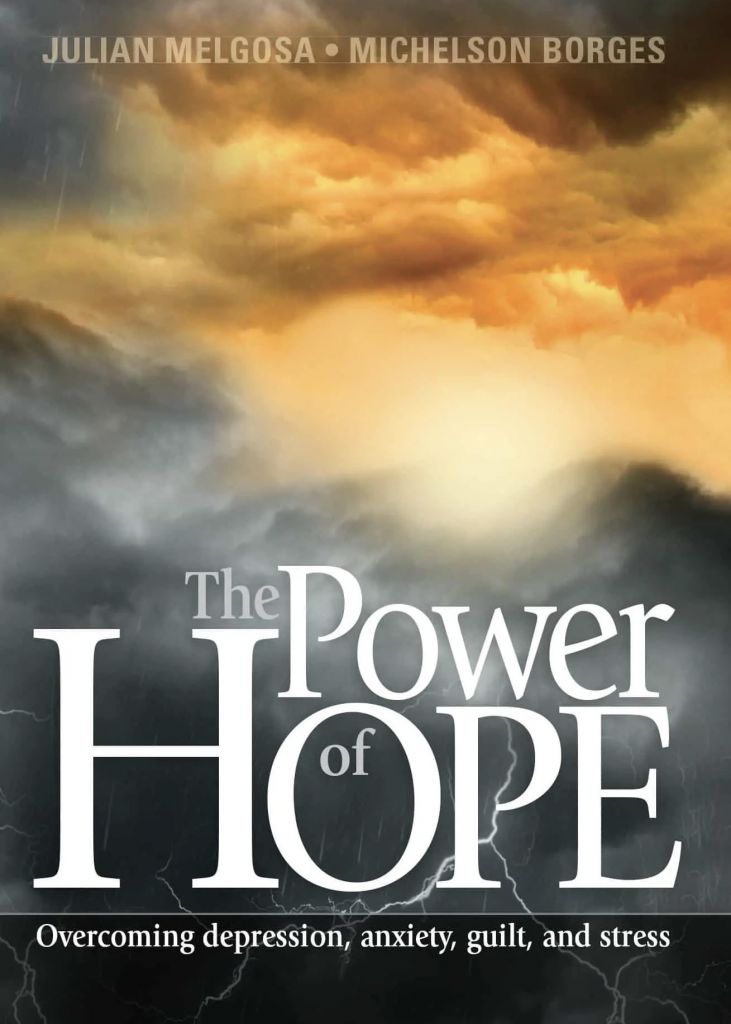In spite of her age—she was only six years old—when Isabel threw fits, no one wanted to be around her. It was frightening and pitiful. The more she reacted in this way, the more bullying she suffered, resulting in a vicious circle of provocation, explosions of rage, and more provocations. She simply lost control and would attack her classmates and teacher. Most of the time, she was sweet and introspective, which led the teachers and school counsellors to suspect that she was expressing some hidden hurt or anger relating to some situation, possibly in her family. Besides, her father had not been to the parent-teacher meetings for quite some time.
Even though she was just a child, Isabel knew that hate, anger, and aggression did not bring her any benefits. However, they are strong tendencies, and many people do not know how to deal with them, whether they are children or adults. As a consequence, people become bitter and pay for this with their own health, besides damaging their relationships.
Anger and hate can show up occasionally, and as human feelings, they are not completely avoidable. However, when they surpass the level of being sporadic, they are reactions that cause devastation in
family, social, and work relationships. Physical aggression is unacceptable in any human group and should be prevented.
It appeared that Isabel was not suffering from physical aggression, but it was evident that she was suffering some type of lack of love. Something was not right in her home.
How to avoid anger and aggressiveness
Consider the true importance of the situation
Ask yourself: Is the reason for my hate important? What would happen if things do not turn out my way? Is it worthwhile to expend so much adrenaline? Will I regret this if I lose my composure?
Breathe deeply and calm down
Breathing relaxes us. When you feel anger approaching, breathe slowly and deeply. Give yourself instructions: “Calm down, nothing is going to happen! Control yourself, this will soon go away.” It was Thomas Jefferson who originated the famous saying: “When angry, count to ten before you speak. If very angry, count to a hundred.” Here’s a hint: never send an e-mail when you are angry. If you wish, you can write it but save it as a draft. Read the message again several hours later and reconsider.
Try to distract yourself
Thinking about what caused your anger is just throwing wood on the fire. Pray to God, asking for help to overcome the negative feeling, and become involved in some activity that occupies your mind with other concerns until the anger has decreased.
Choose the right solution
Avoid saying phrases like these to other people: “You are selfish.” “Your attitude is always the same toward me.” “You do not care about what I think.” Try to express yourself with positive statements: “I would like for you to try to do this in another way.” “I am saddened by this attitude.” “How can I help you?”
Do not consider your opponent as an enemy
When someone upsets you with their behaviour or words, do not think that this individual is provoking you. Think about other reasons and circumstances that explain this behaviour. If he or she really has bad intentions, you will admit that this individual is an unhappy person and needs compassion.
Practice forgiveness
Forgiving does not mean losing the battle. An old Brazilian proverb states, “Forgive your offender and you come out the winner.” Forgiving not only produces calmness in you but also in the other person, who, additionally, will end up respecting you for your nobleness and generosity.
Be grateful
The Bible states,
“Give thanks in all circumstances; for this is God’s will for you in Christ Jesus”.
(1 Thessalonians 5:18)
Research confirms that the simple act of showing gratitude for something makes the individual happier. Researchers at the University of California affirm that constantly practicing gratitude can improve health.
Robert A. Emmons and Michael E. McCullough, “Counting Blessings Versus Burdens: An Experimental Investigation of Gratitude and Subjective Well-being in Daily Life,” Journal of Personality and Social Psychology 84, no. 2 (2003), http://greatergood.berkeley.edu/pdfs/GratitudePDFs/6Emmons-BlessingsBurdens.pdf; Mei-Yee Ng and Wing-Sze Wong, “The Differential Effects of Gratitude and Sleep on Psychological Distress in Patients With Chronic Pain,” Journal of Health Psychology 18, no. 2 (February 2013): 263–271, doi:10.1177/1359105312439733.
Pray
The Bible also says, “Love your enemies and pray for those who persecute you” (Matthew 5:44). Researchers have demonstrated that if the person prays for the individual who upset them, this relieves the bad feeling, dissipating the negative thoughts.
Alex M. Wood et al., “Gratitude and Well-being: A Review and Theoretical Integration,” Clinical Psychology Review 30, no. 7 (November 2010): 890–905, doi:10.1016/j.cpr.2010.03.005.
How anger affects the irate person
Although, in the past, it was considered an advantage to let off steam when someone was angry, today it is clear that the risks surpass any small advantage that could be obtained through these bad attitudes. Compared to people with peaceful habits, those who become angry, in general, face the following situations:
— They have four times more propensity to suffer coronary disease.
— They run greater risks of dying young.
— They experience guilt after explosive attitudes.
— Their relatives and friends avoid them because of their hot temper.
— They have more conflict in their marital relationship.
— They are more prone to using harmful substances (cigarettes, alcohol, other drugs, etc.).
— They run a greater risk of overeating and suffering weight gain.

Before becoming angry, think twice, because it is possible to suppress this conduct and avoid harm.
Annoyed Prophets
The Bible gives some interesting examples of people who allowed themselves to be overcome by anger. Incidentally, this is a unique detail of the Holy Scriptures—its authors did not sugar-coat things, nor did they pose as infallible heroes. Their defects are all recorded there. Do you know why? Because God wants you to know that there is always hope for those who submit to His will and power. Let’s talk about two prophets: one from the Old Testament, the other from the New Testament.
Jonah received a difficult mission from God: preach to the people of Nineveh. This city with more than one hundred thousand inhabitants was the capital of the terrible Assyrian Empire. These people were so evil that they were not content with just killing their opponents—they tortured them. They were enemies of Israel, and God wanted His prophet to go to their capital city and take a message. Now, this was just asking too much!

Jonah fled from this mission. He took a ship going in the opposite direction. After being thrown overboard, the prophet was swallowed by a huge fish; three days later, he was regurgitated onto the beach. While in the belly of the fish, Jonah prayed and repented. He went to the Assyrian city, presented the message that it would be destroyed if its inhabitants did not repent, then he turned around and sat down to see what was going to happen. But nothing happened. The Ninevites repented and changed
their attitude—the entire city! This made the prophet mad. After all, had he not announced its destruction? He became angry with God’s mercy, and he complained to the Creator.
God only asked, “Is it right for you to be angry?” (Jonah 4:4). And God remained silent, letting His son reflect.
A while later, God returned to speak, revealing a little more of His character of love: “And should I not have concern for the great city of Nineveh, in which there are more than a hundred and twenty thousand people who cannot tell their right hand from their left—and also many animals?” (Jonah 4:11). God is compassionate, forgiving, and patient. He loves all, including the animals! In the book of Jonah, we see the Creator working for the salvation of the people of Nineveh and that of His own angry prophet.

In the New Testament, when transformation is mentioned, one of the personalities who most captures our attention is John, also known as one of the “sons of thunder.” Woe to the person who might cross his path on a bad day! On one occasion, he asked Jesus for permission to call fire from heaven against certain opponents! But the time spent with the Master moulded the character of this disciple. In a few years, he was no longer a “son of thunder,” but instead he was known as “the disciple of love.” What was the secret? It is very simple: proximity to Jesus. Those who experience this can say, like Paul, “I have been crucified with Christ and I no longer live, but Christ lives in me. The life I now live in the body, I live by faith in the Son of God, who loved me and gave himself for me” (Galatians 2:20).

We do not need to struggle alone. God is the One who is most interested in our inner peace. He offers this blessing to every one who wants it, even to a six-year-old child like Isabel. Unfortunately, in her home, there was no type of religious practice that could lead her to a relationship with her heavenly Father.
Test yourself
To learn whether you are prone to anger, answer YES or NO to these questions:

1. Is it difficult for you to forget the bad things others do to you? ___
2. When you are not in agreement with your friends, do you end up in a heated argument? ___
3. When you think of your opponent, do you get stomach pains and a rapid heart rate? ___
4. Do you become upset when you need to wait in line? ___
5. Do you become angry with yourself when you cannot control your emotions? ___
6. Do you become very upset when others are not punctual or do not do things completely? ___
7. Do you have a tendency to not remember anything that you have said while you were furious? ___
8. Do you have a tendency to not remember anything that you have said while you were furious? ___
9. After being upset, do you feel a strong desire to eat, smoke, or drink alcohol to compensate for what has taken place? ___
10. Have you ever become angry to the point of hitting a person or an object? ___
Results
— If you answered YES to eight or more questions, seek help as soon as possible so you can control your anger. Your personal, family, and work relationships are at serious risk.
— If you answered YES to four to seven questions, this is a warning that your anger is near a dangerous level. Seek to develop patience and tolerance, and you will be able to live in different ways, keeping calm and yielding. Observe others and learn how to get what you want using good manners.
— If you answered YES to three or fewer questions, you are in the right place to face anger and hate. Continue in this manner, because you are a person who is hard to upset.
The content of this post is taken from The Power of Hope — Overcoming depression, anxiety, guilt, and stress, authored by Julián Melgosa and Michelson Borges.
Julián Melgosa holds a doctorate in educational psychology from Andrews University. A member of the British Psychological Society, he was a university professor and is the author of various articles and books in the area of emotional health.
Michelson Borges is a journalist with a master’s in theology from Brazil Adventist University. He is the editor of “Vida e Saúde” (Life and Health magazine), is a seminar presenter and has authored books on media, science and religion.





